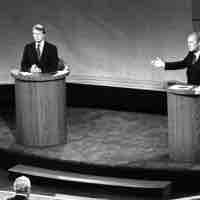Chapter 27
The Conservative Turn of America: 1968–1989
By Boundless

Republican Richard Nixon was elected president in 1968 and easily won reelection in 1972; however he left office amidst a scandal in 1974.
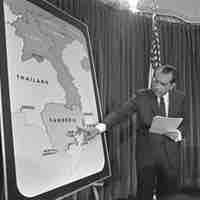
The Nixon Doctrine aimed to gradually strengthen South Vietnamese forces so they could defend against North Vietnam without U.S. support.

Under the Nixon Doctrine, the U.S. continued to assist its allies through economic aid and military supplies while encouraging allies' self defense.
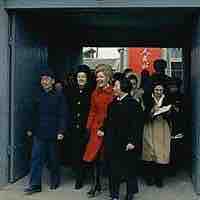
Richard Nixon's 1972 visit to the People's Republic of China was an important step in easing relations between both nations.
Nixon's domestic policies were shaped by the ideas of New Federalism, which proposes the decentralization of political power.

The Nixon administration, prioritizing a return to "law and order," did not advance civil rights to the extent of the previous administrations.
In 1972, Nixon beat George McGovern in a landslide reelection victory due to negative views on McGovern's campaign.
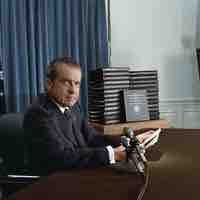
The Watergate scandal encompasses a series of illegal activities undertaken by members of the Nixon administration in 1972, leading to Nixon's resignation.
Jimmy Carter’s administration began with great promise, but his domestic and foreign policies were met with criticism.
A poor relationship with the Democrats in Congress inhibited Carter's ability to achieve his much of his legislative agenda.
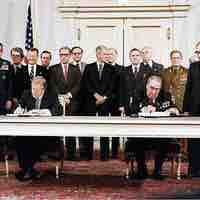
Carter's foreign policies revolved mainly around relations with South Korea, China, the Soviet Union, and the Middle East.
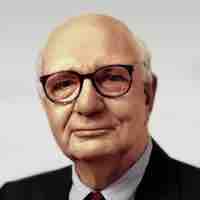
Jimmy Carter’s administration began with great promise, but his efforts to improve the economy through deregulation largely failed.
The Iranian hostage crisis was a diplomatic crisis between Iran and the United States in which 52 Americans were held hostage for 444 days.
Ronald Wilson Reagan was the 40th President of the United States, serving from 1981 to 1989.

In the election of 1980, Republicans won the presidency, control of the Senate, and 34 seats in the House of Representatives.
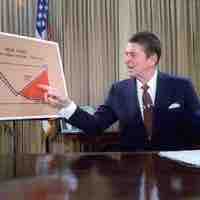
"Reaganomics" refers to the economic policies promoted by the U.S. President Ronald Reagan during the 1980s.
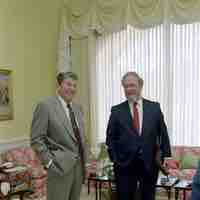
President Reagan made many new court appointments during his administration and ran into challenges with the Democrats in Congress.
The Gay Rights movement grew out of the Gay Liberation Movement of the 1970's, pursuing equality through the framework of civil rights.

Reagan won the election of 1984 in a landslide, winning 58.8% of the popular vote to Mondale's 40.6% and a record 525 electoral votes.
President Reagan has been criticized for his political responses to poverty, homelessness, and the outbreak of the AIDS epidemic.

Reagan initiated a large build-up of the American military with the intention of defeating the Soviet Union in an arms race.

Reagan's involvement in the Middle East is most known for the Beirut Barracks Bombing, the 1986 bombing of Libya, and the Iran-Contra affair.
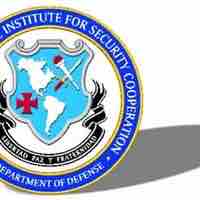
Declassified documents show that the Reagan administration supported para-military groups in Central America in multiple genocidal campaigns.

During 1987 summit meetings, Reagan and Gorbachev agreed to nuclear arms reductions, ushering in the end of the decades-long Cold War.
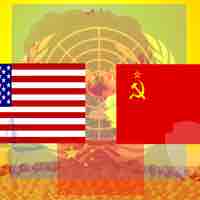
The costs of the Cold War between the Soviet Union and the United States, as well as its numerous proxy wars, were extensive.
